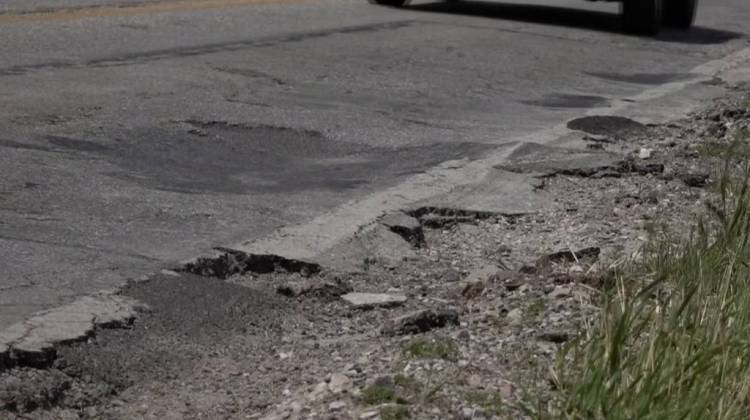The subject of police reform is top of mind nationally. In Indianapolis, there have been recent steps to create new review boards and change use of force policies.
Another piece of the puzzle that is garnering attention is the power of police unions. Indianapolis’ union is the Fraternal Order of Police, or FOP.
On a recent day of protests, organizer Mat Davis used a bullhorn to call out to a few hundred people standing on Monument Circle.
"FOP is the union that keeps the police from getting fired," Davis says.
Protestors across Indianapolis, and the nation, are increasingly saying police unions have too much power.
Indianapolis’ FOP started in the late 1940s. Indiana ACLU Executive Director Jane Henegar says, like other labor groups, it aims to help workers.
"So we can expect police unions see as their job first and foremost to protect their membership," says Henegar.
But police unions often offer protections that other groups don't.
IU East Criminal Justice lecturer David Kim recently talked about those protections on All IN, a statewide talk show that airs on WFYI.
He says much of this overarching power stems from a federal doctrine called qualified immunity.
"To shield for public officials, such as police officers," says Kim, "from being sued for actions that they take, but acting in their official capacity."
United States Supreme Court Justice Sonia Sotomayor has said that the statute "tells officers they can shoot first and think later." Justice Clarence Thomas has also called for the revisiting the issue of qualified immunity.
Courts are directed to resolve these issues as soon as possible.
"And general police get a very broad immunity from liability for their actions," says Henegar, "both whether it's criminally and civil rights actions."
On the local level, the city also enters into contracts with the FOP. These contracts outline fundamental things like pay ranges, but they can also increase officer protections.
Heneagar says city officials need to take a close look at these agreements to make sure they are equitable.
"In general, we need to make sure that there is accountability and transparency," says Henegar.
Many are calling public attention to those contracts right now. And the Check The Police project finds parts of a recent four year contract between Indianapolis and the FOP objectionable.
It gives officers under investigation better access to information in their cases. It disqualifies complaints after a certain amount of time, and it puts limitations on the timeline for officer discipline.
The Indianapolis protest organizer, Mat Davis, recently co-founded the Indiana Racial Justice Alliance. Like many others protesting in the street’s, his group has a list of demands. Among them, do not renew the FOP contract until it puts the financial burden of the lawsuits on the union.
"City Council and the mayor's office should not renew the contract at the end of 2020 with FOP without them having to pay for civil suits and other settlement legal fees attached to police action murders and all the other forms of misconduct we see from the department," says Davis.
He says currently taxpayers end up paying for these suits.
"FOP should pay for their own misconduct," says Davis.
The FOP did not respond to requests for an interview for this story. A statement on its website says, “Our law enforcement membership has worked in good faith with our political leaders and our residents.”
 DONATE
DONATE







 Support WFYI. We can't do it without you.
Support WFYI. We can't do it without you.